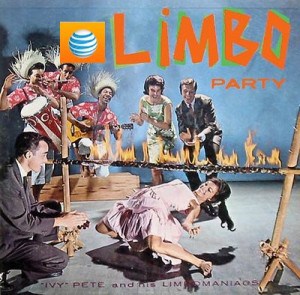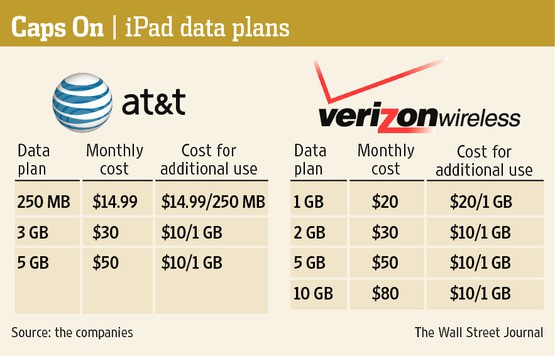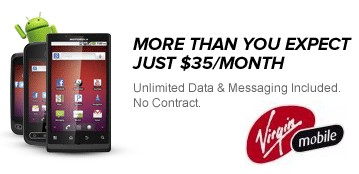 California AT&T customer Matt Spaccarelli can’t understand why his wireless phone company is selling him an “unlimited data plan” for his iPhone that is subject to being throttled to dial-up speeds after as little as 13 minutes of Netflix viewing per day over the course of a month.
California AT&T customer Matt Spaccarelli can’t understand why his wireless phone company is selling him an “unlimited data plan” for his iPhone that is subject to being throttled to dial-up speeds after as little as 13 minutes of Netflix viewing per day over the course of a month.
Spaccarelli argued his case with several AT&T representatives, who recommended he “upgrade” his account to a tiered plan that would guarantee him at least 3GB of an unthrottled experience for the same price he was paying for an ostensibly “unlimited use” plan.
“That to me says ‘if you pay more, then you get what we promised you in the first place,’ and that is not cool,” Spaccarelli told the Associated Press.
[flv width=”480″ height=”290″]http://www.phillipdampier.com/video/AP ATT Backpedals on Throttling 3-1-12.mp4[/flv]
The Associated Press talks with Matt Spaccarelli, who successfully sued AT&T over his throttled Internet connection. (3 minutes)
The Simi Valley man did what few AT&T customers have dared — he took the company to small claims court, and won a judgment of $850.
A Ventura County judge took a dim view of AT&T’s claim that customers can enjoy an “unlimited usage” experience, as long as they understand AT&T never promised what speeds customers would receive along the way.
AT&T lost, according to the judge, because of the legal concept of “justifiable reliance,” which means because AT&T advertises itself as the “fastest wireless network,” a normal consumer with an average understanding of mobile broadband should not expect to have their speeds on an advertised “unlimited use” plan reduced to something akin to an AOL dial-up account.
After AT&T’s representative read the company’s carefully-constructed legalese in its contract and terms of usage in court, even the judge was confused, relates Spaccarelli.
“What does this mean?” Spaccarelli remembers the judge asking.

AT&T's Control Measure for "Heavy Users"
Spaccarelli said he tried it AT&T’s way — switching to a 3GB tiered usage plan to stop the throttling on his “unlimited” plan.
“For one month they switched me to a tiered plan and that month I used the smallest amount of data ever and got the highest bill,” he told KTTV in Los Angeles. “AT&T has not and cannot show that my usage has ever caused damage to their network or caused other people to slow down.”
The AT&T Usage Limbo Dance — Lowering the Bar on Customers With Continuously-Decreasing Usage Allowances
Spaccarelli explained in court his throttling experiences with AT&T have gotten worse over the last several months as part of what he calls AT&T’s “Upside Down Pyramid Scheme.”
“The problem with using the top 5% of data users [as a basis for throttling] is because [customers] are not able to use the services that we would normally use, data usage becomes less and less,” he says. That in turn makes AT&T’s “top 5% usage throttle” engage at perpetually lower and lower usage rates. Heavy users that used to make the top 5% of data users last fall were consuming a dozen or more gigabytes per month. Today, AT&T’s “top 5%” consume only 2GB of data.
“When this all started I was getting slowed down after around 10GB of usage, then 8GB and then 5GB,” he says. “[Now] AT&T will admit that 2GB is the average when most people get slowed down.”
“They don’t want my usage to affect other users, which I totally understand,” Spaccarelli says. “But it seems like as long as I pay more they don’t care that my usage might affect other people.”
Spaccarelli pays AT&T around $140 a month for a plan he says AT&T sold him as “unlimited everything.”
[flv width=”640″ height=”380″]http://www.phillipdampier.com/video/KTTV Los Angeles ATT Lawsuit Interview 3-1-12.flv[/flv]
KTTV talked with Spaccarelli about why he decided to sue AT&T, what the experience was like, and why consumers should be concerned about usage-limiting Internet plans. (5 minutes)
A judge was persuaded by Spaccarelli’s argument and awarded him $850 for the value of his effectively-lost “unlimited use” plan. But Spaccarelli isn’t waiting by his mailbox — AT&T has indicated it intends to appeal the judge’s ruling and has not sent a check. (Perhaps he could follow in the footsteps of George Kontos, an AT&T customer in Winston-Salem, N.C. who walked into a local AT&T retail store with a Forsyth County Sheriff’s deputy, to seize the store’s merchandise to satisfy Kontos’ $2,000 judgment.)

Lowering the bar on "unlimited use" customers.
That a customer successfully sued AT&T in small claims court is a potential nightmare for the company, which has worked for years to eliminate consumer protection clauses from its contracts. AT&T already prohibits customers from pursuing class action lawsuits and typically mandates corporate-friendly arbitration in customer-company disputes. But AT&T has not yet prohibited customers from suing them in small claims court, where damages are limited.
“I’m not a lawyer and I’ve never done something like this before,” Spaccarelli writes on his website. “I did my own research and took my own time to put together this case against AT&T.”
A case that he has begun documenting in an effort to help consumers pursue their own actions against AT&T. He says filing a small claims case is simple.
“You give the clerk $85 and the court will give you a court date, that’s it,” Spaccarelli told AP.
Now AT&T has backpedaled on its original plan to throttle unlimited customers who use more than 2GB per month. Instead, they have announced the throttle will kick in after 3GB of usage, the same amount offered by AT&T’s most popular $30 tiered plan. That gives customers two choices: a speed throttle or overlimit fees for customers who exceed AT&T’s allowance.
AT&T has at least 17 million customers grandfathered on its now-discontinued “unlimited use” plan. Any of them face the potential of throttling by AT&T, which could lead others to small claims court, with Spaccarelli’s help. He told the New York Times he’s willing to travel anywhere in the country to appear as an “expert witness” in future court cases, as long as someone covers his travel expenses.
Spaccarelli says he’s not really interested in the $850, he just wants his unlimited use plan to really mean “unlimited use” again.
“I’d give back the money if they stopped slowing my speed down,” he says.
[flv width=”640″ height=”380″]http://www.phillipdampier.com/video/Spaccarelli Calls ATT 3-12.flv[/flv]
Spaccarelli calls AT&T customer service looking for his $850. (2 minutes)
 “Disruptive” is perhaps too timid a word to use for Skype co-founder Niklas Zennstrom, the man who brought Excedrin-strength headaches to the music industry with file-swapping software Kazaa and streamed video across the net for free with Joost. Now he wants to blow up America’s business model for expensive wireless data by literally giving it away to wireless phone users.
“Disruptive” is perhaps too timid a word to use for Skype co-founder Niklas Zennstrom, the man who brought Excedrin-strength headaches to the music industry with file-swapping software Kazaa and streamed video across the net for free with Joost. Now he wants to blow up America’s business model for expensive wireless data by literally giving it away to wireless phone users.

 Subscribe
Subscribe








